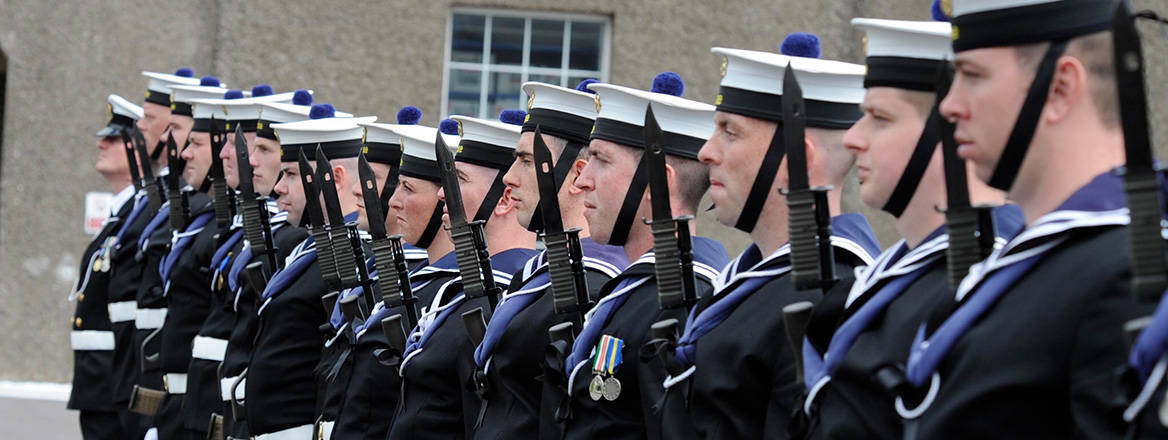Irish Airspace and Waters Remain Europe’s ‘Open Flank’
Despite a ‘secret deal’ with the RAF, Ireland’s lack of adequate air and maritime defences leaves Europe vulnerable to surprise attacks. Efforts have been made to overcome this, but more can be done by involving neighbouring countries.
Recently, a series of articles in The Irish Times revealed a ‘secret pact’ between the UK and Irish governments going back to the 1950s, permitting the RAF to intervene in the event of a threat in Irish airspace. In spite of some pearl-clutching expressions of shock, this perfectly rational arrangement has been common knowledge in Irish (and UK) defence circles for years. Indeed, going beyond this ad hoc air policing role, it would not be surprising if RAF P8s were to operate in a similar role to ensure that Russian submarines are not given entirely free rein in the Eastern Atlantic Ocean. Ad hoc and informal arrangements – to the extent that they exist – are inadequate substitutes for a secure defensive system for Ireland and by extension Northern Europe. So, what options might there be to reinforce NATO’s open northwestern flank?
Ireland – the second-richest country in the EU – invests around 0.26% of its GDP, or about £900 million, in its defence – the lowest proportion in Europe. As one might expect, with arguably the finest military tradition of any small country in Europe, Irish soldiers are absolutely first rate. Despite low pay, chronic underfunding and poor living conditions, Irish soldiers have an excellent reputation internationally, and particularly in the UK. However, underfunding has exacerbated an ‘existential’ recruitment and retention crisis (especially for the Naval Service). In terms of operational capability, Ireland’s armed forces are scarcely equipped even to know if an intrusion into the country’s sea and airspace is taking place, let alone to do anything about it. They contribute nothing to the security of Europe’s vital northwestern flank. Whisper who dares, but most people know why this is. Others are doing it for them.
Ireland’s weakness is Europe’s weakness, especially obvious in the 16% of EU waters notionally controlled by the Republic and through which about 75% of Northern Atlantic cables pass. The potential dangers of this were demonstrated during Russian military exercises in January 2022 in Ireland’s Exclusive Economic Zone (an area 200 nautical miles from the coast), when the duties of an adequately functioning navy to remove the threat were carried out – as in a Richard Curtis-style comedy – by a flotilla of fishermen. Not only is there no anti-submarine warfare (ASW) capability in Ireland, there never will be. According to one of the Naval Service’s own junior officers (Lt Shane Mulcahy) writing bravely in the Defence Forces Review, it is ‘lost in the dark’. The Irish Air Corps has no fast jet capability of any kind, and its two ageing Maritime Patrol Aircraft are not equipped to conduct any form of kinetic ASW or anti-surface warfare operations. In the absence of fighter aircraft (or indeed long-range air defence radars) able to identify and challenge hostile or unknown intruders of any kind, Ireland’s aviation security is currently subcontracted, at no cost, to the RAF.
Ireland’s armed forces are scarcely equipped even to know if an intrusion into the country’s sea and airspace is taking place, let alone to do anything about it
There is no lack of awareness of this problem, in Ireland or more widely. Barring some kind of strategic shock (the invasion of Ukraine was not sufficient), action is unlikely for two reasons. First, there is a deeply ingrained national culture of neutrality. Second, this cultural bias is compounded by the reality that with Sinn Fein holding 36 out of 160 seats in Ireland’s Parliament, the Dail, a significant portion of Ireland’s political elite is influenced in its policy towards the UK more by the narratives of early 20th century politics and the more recent ‘Troubles’ in Northern Ireland than by 21st century strategic realities. The idea of a deal with the UK to assist in the protection of Ireland is anathema to them. The result is that Europe faces the problem of an open flank in the North Atlantic Ocean which will not be addressed by the country closest to it.
Some effort has been made to rectify this. In February 2022, a ‘Commission on the Defence Forces’ reported. Decisions were made to improve ISR and cyber capabilities and to purchase some new equipment including primary air defence radar. By the end of the decade, the Irish Defence Forces will at least know more about who and what is in the country’s waters and airspace.
In those circumstances, in the absence of significant Irish effort, what options exist for Europe – in cooperation with Ireland – to strengthen air and maritime defence in such a vital area? The challenge is to leverage Ireland’s existing defence plans and its geographical position without causing domestic political trouble. In the maritime domain, there is some progress. On 14 May 2023, Ireland announced that it was likely to join NATO’s newly created Critical Undersea Infrastructure Coordination Cell, a small but significant step.
Europe faces the problem of an open flank in the North Atlantic Ocean which will not be addressed by the country closest to it
With respect to maintaining some degree of security in the air, the idea of an air policing mission has already been proposed by Irish TD (Member of Parliament) and former special forces officer Cathal Berry. Mindful of sensitivities, Berry is careful to refer to a ‘neighbouring country’. Given political realities, that country is unlikely to be the UK. Further, security experts in Dublin have indicated that an approach to France canvassing the possibility of an air policing agreement was briskly rebuffed, with France taking the entirely rational view that the UK was the appropriate point of contact.
The key could lie elsewhere. In November 2022, Ireland issued its Strategy for the Nordic Region, one of the aims of which is to ‘advance shared interests and values [and] deepen bilateral relationships and our multilateral commitment’. It goes on to outline the common approaches of Ireland and the Nordic states and notes that ‘it is more important than ever to stand united in defence of these shared values’. Closer defence and security relationships with the Nordics would be a relatively easy political sell in Ireland. In the realm of air defence, aside from the US, Norway has the closest relationship with the UK. Further, it lies on the routes taken by intruders into Irish airspace. Norway’s air force often ‘hands over’ Russian intruders in the North Atlantic Ocean to RAF interceptors. Could the UK propose that Norway and the other well-armed Nordic states examine the possibility of some form of arrangement with Ireland and the UK? Language is important in one of Europe’s few remaining formally neutral states, so such an endeavour might be focused around the protection of commercial aircraft – the ‘Joint Aviation Security Initiative’, perhaps?
Clearly, Ireland cannot offer air assets – in the form of fighters – but it can offer its vital location and soon a radar system with a potential reach far into the North Atlantic Ocean. Moving forward with a Nordic-led air policing mission, along with UK participation, would be a major step in giving Ireland a far more significant role in European defence at minimal political and financial cost. In the event of success, perhaps a similar approach might work at sea. The alternative, of course, would be to carry on and substitute hope for strategy. In turn, to be blunt, we are left with the UK and the rest of Europe vulnerable to a Russian surprise attack.
The views expressed in this Commentary are the author’s, and do not represent those of RUSI or any other institution.
Have an idea for a Commentary you’d like to write for us? Send a short pitch to commentaries@rusi.org and we’ll get back to you if it fits into our research interests. Full guidelines for contributors can be found here.
WRITTEN BY
Frank Ledwidge
- Jim McLeanMedia Relations Manager+44 (0)7917 373 069JimMc@rusi.org


